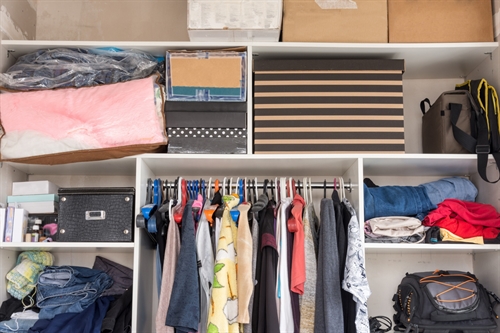When it comes to filling your storage unit, do you dump and go, or do you take a more strategic approach? Bunging items into your lock-up as quickly as possible might save you time on drop-off day; but when it comes to remembering what you’ve got stored, you might wish you’d taken a bit more care.
Is my storage unit suitable?
First make sure that your storage unit is right for the item you’re storing. Some domestic goods are banned from storage units. These include food, combustible items and waste. To learn more about what you shouldn’t put in a storage unit, see our post.
Other items need specialist facilities. For example, antique furniture and musical instruments need climate-controlled storage.
Will it fit in your storage unit?
Before you store, think whether the item you’re putting into storage will fit in the space. If not, you may need to take some other goods out of storage; or you might want to upgrade to a larger unit. You may also need to ask for a ground-floor storage unit. Remember that if you need more space, you will probably have to pay more for it.
For really bulky items, ask yourself whether it is actually worth storing. With fridges, for example, it may be better value to get rid of it on a local selling site and buy a new fridge when you need it again.
Give yourself time to organise your storage unit
When you are putting lots of items into store, give yourself time. You may find you need to re-organise your storage unit, or you may even need to move to a larger unit. It’s worth taking time to organise stored goods to ensure you make best use of the space. It’s also important to avoid placing heavy goods on top of fragile items. And make sure that domestic goods you want often are easy to get at. When you know you’ve got to do some heavy lifting, take a helper along. And ask your storage company if they have a trolley for customer use.
If you are storing something large and heavy or fragile, consider paying for expert help. A removal company can take on the hassle of moving heavy furniture into storage. Ask your storage company for a recommendation; or check the British Association of Removers’ directory.
Note it on the inventory
We strongly recommend you have a storage inventory. You’ll need it for insurance purposes. It also may be a condition of the contract you have with your storage company. And we recommend an inventory for your own convenience. You’d be surprised how easy it is to forget where you’ve put an item if you haven’t seen it for three months. With an inventory you can quickly work out where you stored your hose reel, paddling pool and parasol. If you’re wondering where to start with a self-storage inventory, see our blogpost.
Update your insurance
If your reorganisation has increased or decreased the value of your stored goods, make sure you let your insurer know. At Store and Insure, we’re always happy to hear from you by phone or email if you need to amend your policy.
Do you know how much you are paying for self-storage insurance? If you’re using the insurance that your storage company offered you, it may not be clear, but they should tell you if you ask. To make sure you’re not overpaying, get a quick quote from us to see how the prices compare: by switching insurers you may be able to save yourself a bit of cash each month.
Your stored goods are important, so organise them with care and they will come out of storage in good condition.


